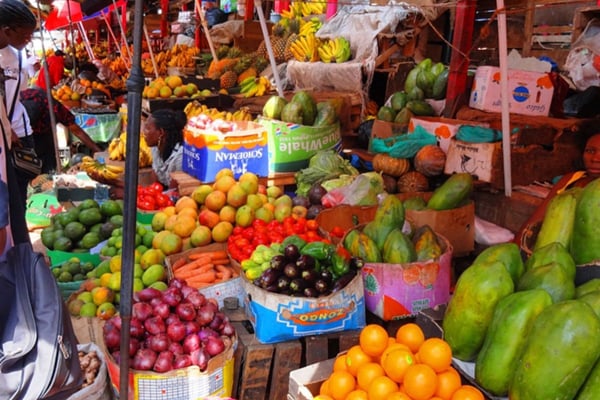Climatic change likely to exacerbate food insecurity in Uganda- survey

A number of food items have registered an increase in prices
A joint survey done by the University of Cambridge and Makerere University has revealed that a major risk of climate change is likely to exacerbate food insecurity in Uganda.
The climatic survey which constituted of academicians and climatic activists augured that food insecurity exists when people are unable to access sufficient safe, nutritious food and that as climatic disruption continue to impact agriculture and economic growth, increasing number of people will struggle to purchase food-a problem that may be compounded by rising prices.
A report titled Living in the Climate Crisis: Young people in Uganda from the research draws on 1,214 survey responses, 102 interviews, and 12 focus group discussion with young people in Karamoja and Busoga sub-regions of Uganda. The report also highlights insights from the multi-sector, youth centered Kampala-Cambridge workshop, Young People, Climate Disruptions and in adaptation in Africa held on 1214 July 2021.
Presenting the key findings on the climate impacts on youth livelihoods in in Kampala, Dr Anna Barford, a senior associate of University of Cambridge said: “Our study found that 76 percent of survey respondents had their livelihood disrupted by environmental changes during the past year. 53 percent of them also indicated pausing their livelihood activities for at least seven days due to climate change.”
Dr Barford said young people engaged in both on-farm and off-farm activities in the agricultural sector have seen their productivity and incomes decrease due to climate variability and unpredictable weather patterns.
“This has produced ripple effects on other aspects of their lives including health, food and nutrition and education,” she said.
The report indicates that 45 percent of young people surveyed had changed their livelihood activities because they were no longer profitable after being affected by environmental changes. For instance, from agriculture to informal small-scale businesses including boda bodas, carpentry, small-scale mining, poultry.
Dr David Mfitumukiza of Makerere University said climate change is already impacting Uganda through both rapid-and slow –onset.
Exposure to climate risks has been exacerbated by influxes of refugees from neghbouring Democratic Republic of Congo, South Sudan and Somalia with estimated one and half million refugees now in Uganda.




